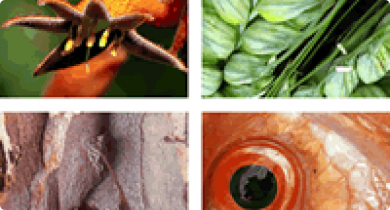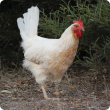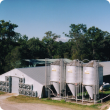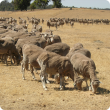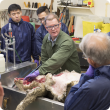Biosecurity
Biosecurity is fundamental for safeguarding our valuable agricultural resources against the threat and impacts of pests, weeds and diseases (pests).
Biosecurity is the management of the risk of animal and plant pests and diseases entering, emerging, establishing or spreading in Western Australia, to protect our economy, environment and the community.
To protect Western Australian agricultural industries from pests the Department of Agriculture and Food, Western Australia:
- Works with stakeholders to identify and manage biosecurity risks.
- Develops legislation.
- Establishes import controls.
- Conducts inspections.
- Provides quarantine services as required.
To find out more about what we do to protect agricultural production and export opportunities within the State please search our website.
Filter by search
Filter by topic
- Livestock & animals (98) Apply Livestock & animals filter
- (-) Remove Livestock species filter Livestock species
- Livestock biosecurity (83) Apply Livestock biosecurity filter
- Pests, weeds & diseases (80) Apply Pests, weeds & diseases filter
- Livestock health & diseases (75) Apply Livestock health & diseases filter
- Diseases (75) Apply Diseases filter
- Livestock disease surveillance (72) Apply Livestock disease surveillance filter
- Sheep (41) Apply Sheep filter
- Beef cattle (33) Apply Beef cattle filter
- Livestock management (26) Apply Livestock management filter
- Dairy cattle (25) Apply Dairy cattle filter
- Emergency animal disease preparedness (21) Apply Emergency animal disease preparedness filter
- Livestock movement & identification (18) Apply Livestock movement & identification filter
- Poultry & birds (16) Apply Poultry & birds filter
- Pigs (15) Apply Pigs filter
- Horses (14) Apply Horses filter
- Goats (13) Apply Goats filter
- Management & reproduction (13) Apply Management & reproduction filter
- Control methods (6) Apply Control methods filter
- Bees (6) Apply Bees filter
- Feeding & nutrition (4) Apply Feeding & nutrition filter
- Quarantine (4) Apply Quarantine filter
- Camelids (4) Apply Camelids filter
- Chemicals (4) Apply Chemicals filter
- State Barrier Fence (3) Apply State Barrier Fence filter
- Wildlife biosecurity (3) Apply Wildlife biosecurity filter
- Residues in livestock (3) Apply Residues in livestock filter
- Preventing residues (3) Apply Preventing residues filter
- Importing animals (3) Apply Importing animals filter
- Invasive species (3) Apply Invasive species filter
- Importing to Western Australia (3) Apply Importing to Western Australia filter
- Plant biosecurity (3) Apply Plant biosecurity filter
- Pests (2) Apply Pests filter
- Veterinary chemicals (2) Apply Veterinary chemicals filter
- Mechanical, physical and cultural (2) Apply Mechanical, physical and cultural filter
- Food, export & investment (2) Apply Food, export & investment filter
- Climate, land & water (2) Apply Climate, land & water filter
- Emergency response (2) Apply Emergency response filter
- Land use (2) Apply Land use filter
- Grapes & wine (1) Apply Grapes & wine filter
- Land use planning (1) Apply Land use planning filter
- Fruit (1) Apply Fruit filter
- Horticulture (1) Apply Horticulture filter
- Citrus (1) Apply Citrus filter
- Biosecurity and Agriculture Management Act (1) Apply Biosecurity and Agriculture Management Act filter
- Biosecurity governance (1) Apply Biosecurity governance filter
- Crops (1) Apply Crops filter
- Export services (1) Apply Export services filter

